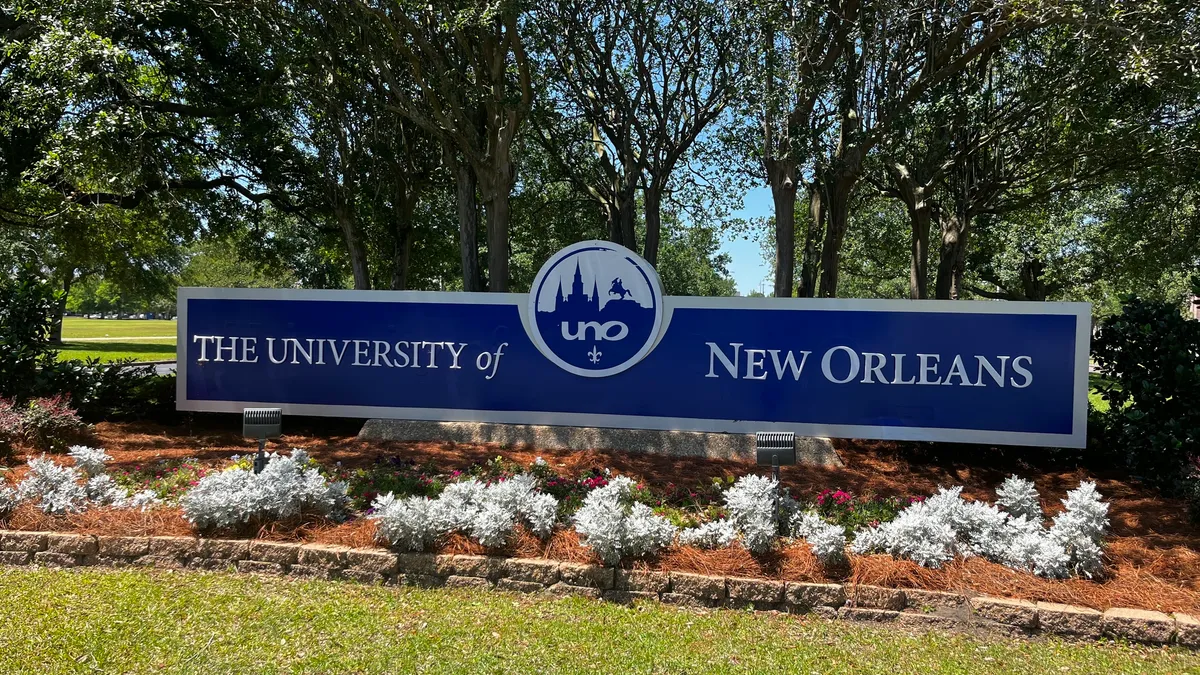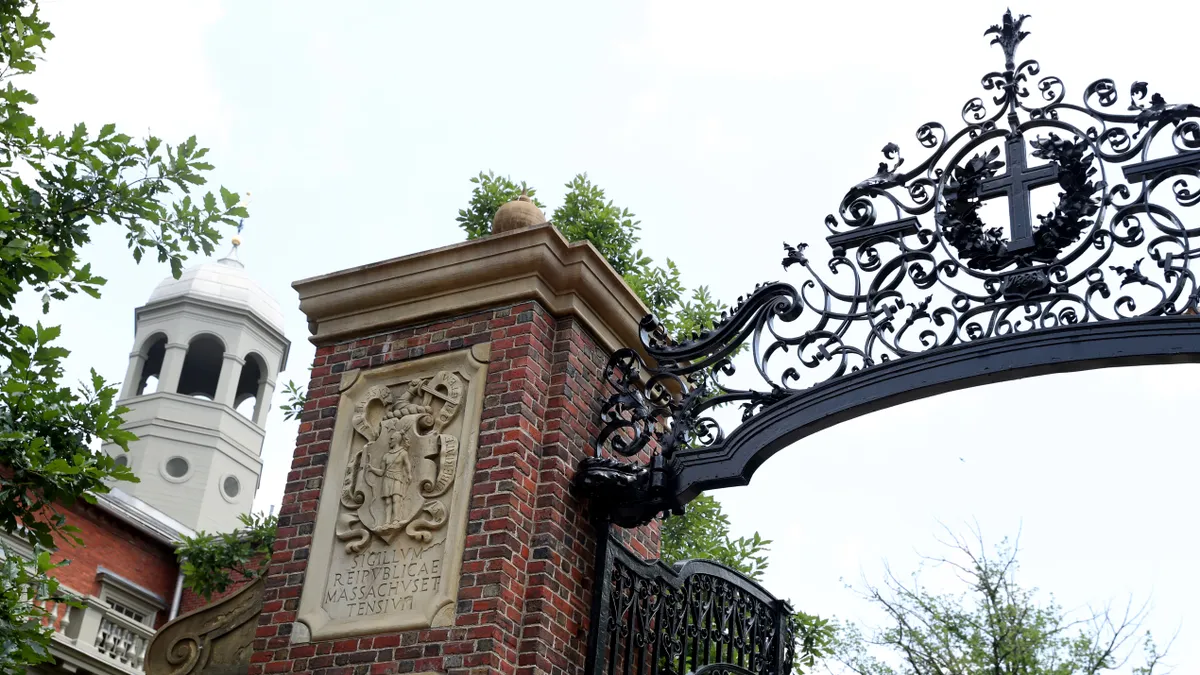Editor's note: It's harder than ever for colleges to fill their incoming classes, but some schools are meeting that challenge with creativity. In this regular column, called The Pipeline, we'll spotlight innovative tactics colleges are using to cut through the noise and reach prospective students throughout the recruitment and enrollment process.
Student loan debt has once again captured the national spotlight.
Progressive lawmakers are pressuring President Joe Biden to implement widespread loan forgiveness. The administration has forgiven billions in debt from students whose colleges defrauded them. And some research suggests that members of Gen Z, or those born from 1997 onward, are increasingly skeptical about whether college is worth the price of taking out loans.
Cornell College, a roughly 1,000-student liberal arts school in Iowa, recently took a big step to address that hesitation. For 65 first-year students who enroll in the 2022-23 academic year, the college is promising to pay up to $12,000 of each of their federal student loans upon graduation.
If participating students accumulate $24,000 or more in loans, the college will pay the full $12,000. If they owe less than $24,000, the school will pay half their total student loan debt.
Cornell College already discounts its tuition substantially. All first-time, full-time undergraduates received institutional grants or scholarships from the school in the 2019-20 academic year, with aid averaging around $31,000, according to federal data.
Still, prices at Cornell College are steep, with the institution listing tuition alone at more than $47,000. In 2019-20, nearly two-thirds of first-time, full-time students took out federal student loans, averaging $5,630. Overall, Cornell College students receiving federal loans have a median debt of $27,000 upon graduation.
"I really liked the idea that students can take out, you know, $5,500 in the first year and $6,500 in their second year," said Wendy Beckemeyer, Cornell's vice president for enrollment management. "So perhaps a student could essentially go to school without having debt in those first two years."
Inside the plan
The debt-reduction pledge is meant to do more than just lower students' bills post-graduation. It also aims to give students an incentive to finish college, and officials predict it could give a modest boost to Cornell College's enrollment.
To receive the benefit upon graduation, students have to live in the college's residential housing, maintain satisfactory academic progress, graduate within four years and be enrolled as full-time students during their entire time at Cornell College.
Cornell College lists housing and dining as costing a student more than $10,000 annually. In the 2020 fiscal year, housing and dining fees brought in a little over $8 million in revenue, according to tax documents.
Roughly one-third of first-time, full-time students who entered Cornell College in the fall of 2014 hadn’t graduated by six years later, according to federal data, suggesting they either left school without earning a diploma or transferred to another institution.
"I do expect that these students will retain well because there's this great incentive for them to stay in college."

Wendy Beckemeyer
Vice president for enrollment management, Cornell College
Beckemeyer predicts the initiative will encourage students to keep their graduation plans.
"I do expect that these students will retain well because there's this great incentive for them to stay in college," she said.
The plan is expected to add about $600,000 to Cornell College's operating budget if the school ends up with 50 graduates from the first cohort who received the maximum award, Beckemeyer said. But that amount is dwarfed by the $24.6 million the college spent on grants and scholarships in the 2019 fiscal year.
In the 2020 fiscal year, Cornell College netted more than $7.1 million after paying for expenses. The school has also posted surpluses in most years in the past decade, according to tax documents.
The right solution?
Although the pledge has some merits, higher education experts questioned whether other initiatives could better serve students.
"You could say, we're going to use that money to diminish the amount students borrow in the first place," said Sandy Baum, a nonresident senior fellow at the Urban Institute, a left-leaning think tank. "That would be spread across all students regardless of whether they graduated."
Many well-heeled colleges have eliminated student loans from their financial aid packages.
Colgate University in New York announced earlier this year that students from families earning up to $80,000 will have their tuition covered, while those with incomes of up to $150,000 will have their federal loans replaced with grants. Princeton University, Amherst College and Harvard University have offered no-loan financial aid packages for years.
Beckemeyer acknowledged that other schools have removed loans from their financial aid packages, but she contended this doesn't necessarily mean students won't take on debt during college. The debt-reduction pledge struck Beckemeyer as the right solution, she said, as it would put a dent into the actual loans students accumulated.
Cornell College's endowment, valued at $81.1 million in fiscal 2020, is also much smaller than that of institutions removing loans from their financial aid packages, according to data from the National Association of College and University Business Officers. Colgate's endowment, valued at $959.7 million in fiscal 2020, is more than ten times bigger than Cornell College's endowment — even though Colgate has only about three times as many students as Cornell College.
Still, students may end up attending Cornell College who otherwise wouldn't because of the initiative and end up leaving before graduation — missing out on the benefits of the debt-reduction pledge, said David Feldman, an economics professor at the College of William & Mary.
"A student who goes to Cornell College, thinking that they're going to get this little pot of gold at the end — who stays two years and borrows $18,000 and then realizes for one reason or another that they're not going to make it and drops out — is worse off than if they had looked into their other options," Feldman said.
But Cornell College officials believe the program will encourage slightly more students to enroll — and to stay in school once there.
"But it could be more," Beckemeyer said. "We could see quite a lot of interest from this program."























